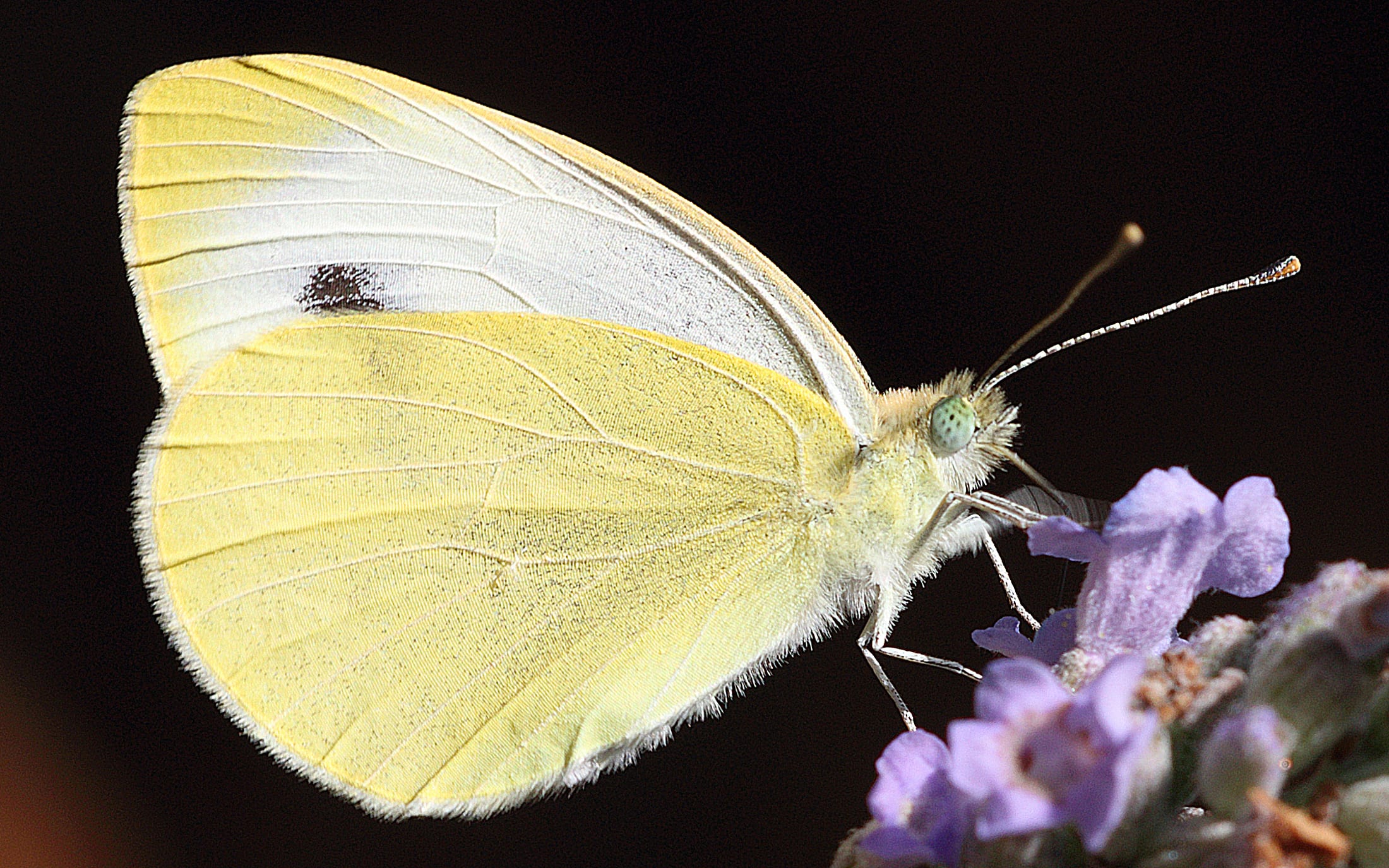News
Wallflowers and the Butterflies that Don’t Love Them

A cabbage butterfly (Pieris rapae) sits on a flower. Image credit: Thorsten Denhard / CC BY-SA (https://creativecommons.org/licenses/by-sa/3.0)
Alan Renwick’s research on the wormseed wallflower began in the 1980s, after a chance meeting with Tufts University professor Frances Chew at a Gordon conference.
“I had decided to work on cabbage pests, because Ithaca is in a cabbage-growing area,” Renwick said. “Frances understood what I was trying to do and steered me toward Erysimum cheiranthoides, which appealed to me because it’s easy to grow and its expected pest – the cabbage butterfly, or imported cabbageworm – is easy to rear. So this became one of our favorite plant–insect systems.”
Cabbage butterflies (Pieris rapae) feed and lay eggs on various food crops in the Brassicaceae family, including cabbage, kale and broccoli. But these insects avoid wormseed wallflower. Renwick’s idea was to identify phytochemicals in the wallflower that the butterflies didn’t like, as a possible source of crop protectants.
In a series of studies between the late 1980s and the early 1990s, Renwick’s team investigated how wallflower extracts sprayed on cabbage leaves affected the butterflies’ egg-laying and feeding behaviors. The team eventually identified wallflower-derived glucosinolates that stimulated the butterflies to lay eggs on the cabbage leaves, and cardenolides that deterred egg-laying by adults and leaf-feeding by their larvae.
The team didn’t pursue cardenolides as crop protectants because of their cardiac activity in humans. “But I was delighted that Georg [Jander] eventually took over this work,” Renwick said. “That wasn’t the original intention when he inherited my lab, but he was interested in glucosinolates and gradually picked up my earlier research on deterrents.”
Renwick is now an Emeritus Professor at BTI; Chew is a Professor Emerita of Biology at Tufts.

